5 Unexpected Ways Thai Spices Can Transform Your Cooking (And Yes, They’re Worth the Heat)
Introduction: The Secret Weapon in Your Pantry
If you've ever tasted a perfectly balanced Thai curry or been hit with the zing of Tom Yum soup, you know that Thai spices don’t just add heat—they bring harmony. From the tangy brightness of kaffir lime leaves to the fiery kick of bird’s eye chilies, these ingredients are more than just spices; they’re culinary alchemists.
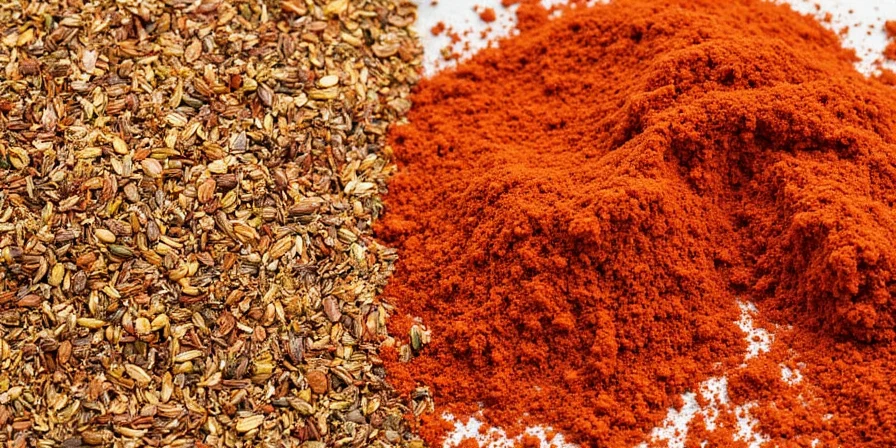
Table of Contents
- Tip #1: Unlock Flavor with Toasting (Yes, Even for Fresh Spices!)
- Tip #2: Build Layers Like a Pro – The Thai Way
- Tip #3: Chill Out – How to Store Thai Spices for Maximum Zing
- Tip #4: Spice Swap Secrets – What to Use When You’re Out of Galangal
- Tip #5: Spice Up Your Life – Creative Uses Beyond Curry
- Deep Dive: Thai Spices vs. Indian Spices – A Flavor Face-Off
- Conclusion: Go Bold, Go Thai
Tip #1: Unlock Flavor with Toasting (Yes, Even for Fresh Spices!)
Most people associate toasting with dried spices like cumin or coriander—but did you know even fresh Thai aromatics benefit from a little dry heat?
Try this: Lightly toast sliced shallots or minced garlic in a dry pan before adding them to a curry paste. This caramelizes their natural sugars, giving you a deeper, sweeter base without overpowering the dish.
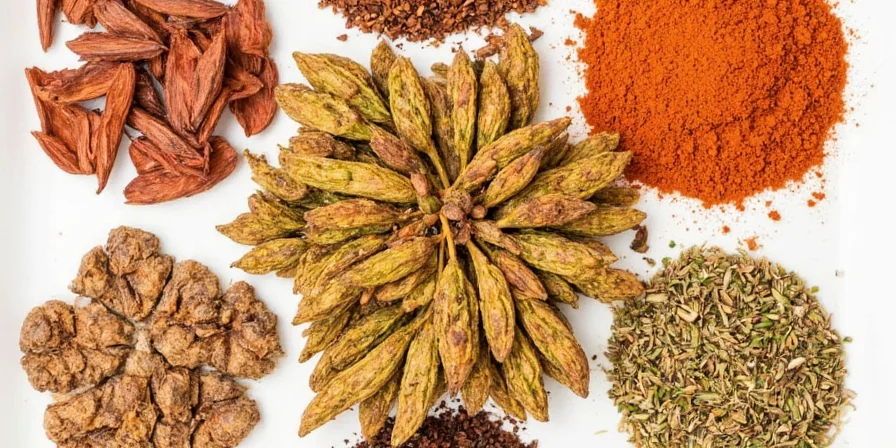
Tip #2: Build Layers Like a Pro – The Thai Way
Thai cuisine thrives on balance—sweet, salty, sour, spicy, and umami. But it's the way the spices are layered that truly sets it apart.
- Start with pounded aromatics (lemongrass, galangal, garlic).
- Add chilies and herbs next (like kaffir lime leaf and cilantro root).
- Finish with liquids and proteins to let the flavors bloom slowly.
| Layer | Ingredients | Purpose |
|---|---|---|
| Base | Lemongrass, galangal, shallots | Built foundation of earthiness and fragrance |
| Middle | Bird’s eye chili, kaffir lime leaves | Spice and citrus lift |
| Top | Fish sauce, coconut milk, lime juice | Balance and depth |
Tip #3: Chill Out – How to Store Thai Spices for Maximum Zing
Many Thai spices are delicate and lose potency fast if not stored properly. Here’s a cheat sheet:
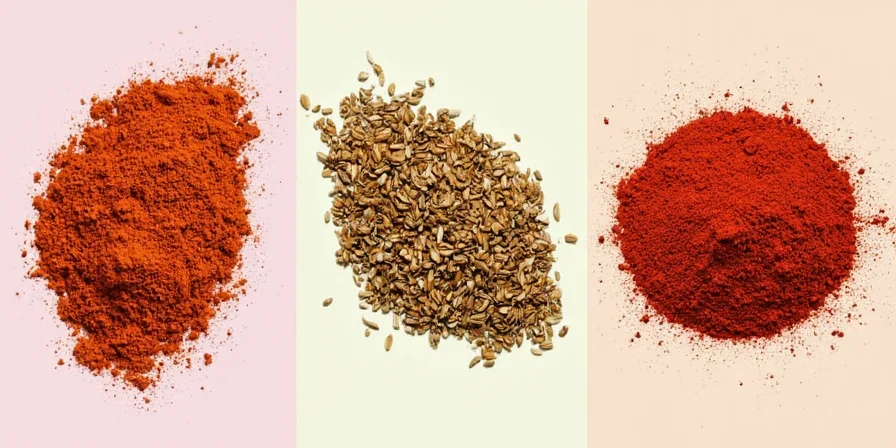
- Chilies: Wrap in paper towels and store in a sealed bag in the fridge. For longer life, freeze whole or chopped in ice cube trays.
- Lemongrass: Trim ends, wrap in damp paper towel, seal in plastic. Keeps up to two weeks.
- Kaffir Lime Leaves: Freeze flat in ziplock bags—no need to thaw before use!
- Galangal: Slice and vacuum-seal or submerge in saltwater in the freezer.
Tip #4: Spice Swap Secrets – What to Use When You’re Out of Galangal
Let’s face it—galangal isn’t always easy to find. If you're in a pinch, here are some substitutes:
| Original Spice | Best Substitute | Notes |
|---|---|---|
| Galangal | Ginger + a dash of lemon zest | Ginger is sweeter; use less and brighten with citrus |
| Kaffir Lime Leaves | Lime zest + bay leaf | No exact match, but mimics the floral-citrus combo |
| Bird’s Eye Chili | Serrano or Thai chili peppers | Less heat but similar flavor profile |
Tip #5: Spice Up Your Life – Creative Uses Beyond Curry
Don’t relegate Thai spices to curries only. Think outside the wok:
- Grilled Veggies: Brush eggplant or zucchini with chili-garlic oil and sprinkle with lime zest before grilling.
- Popcorn Perfection: Toss freshly popped corn with melted butter, crushed red pepper, and kaffir lime zest.
- Cocktail Rim Magic: Mix finely ground dried bird’s eye chilies with sea salt and lime zest for an epic rim.
- Dessert Dare: Try a lemongrass-infused crème brûlée or ginger-lime sorbet.
Deep Dive: Thai Spices vs. Indian Spices – A Flavor Face-Off
Both cuisines use aromatic blends, but they play by different rules. Here’s a head-to-head comparison:
| Characteristic | Thai Cuisine | Indian Cuisine |
|---|---|---|
| Flavor Profile | Light, bright, fresh, aromatic | Rich, deep, complex, often smoky |
| Key Spices | Lemongrass, galangal, kaffir lime, Thai basil, bird’s eye chili | Cumin, coriander, turmeric, cardamom, cinnamon, cloves |
| Technique | Pounded into pastes; used raw or lightly cooked | Dry-roasted or sautéed first to awaken oils |
| Heat Level | Varies, but tends to be sharper and quicker-burning | Often slow-building and long-lasting |
| Common Dishes | Green curry, Tom Kha Gai, Pad Thai, Som Tum | Butter chicken, Rogan Josh, Chana Masala |
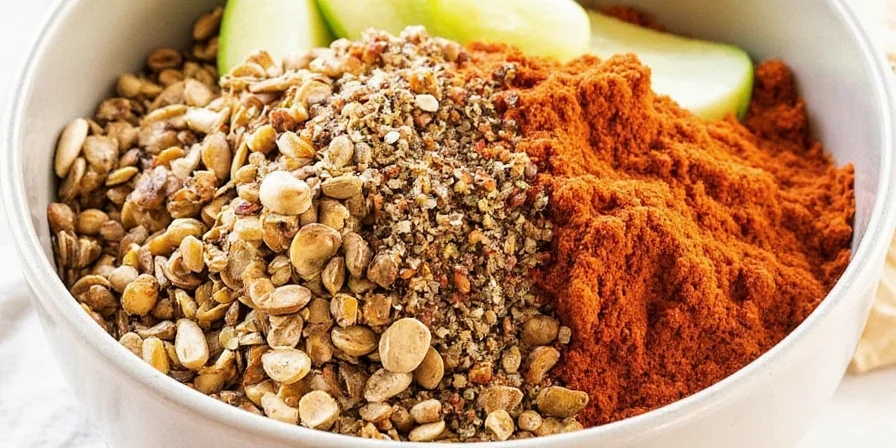
Conclusion: Go Bold, Go Thai
Thai spices aren’t just about the burn—they’re about balance, fragrance, and freshness. Whether you're grinding your own green curry paste or spicing up movie night popcorn, embracing Thai flavors can transform your cooking into something truly special.
So go ahead—grab those bird’s eye chilies, crush that lemongrass, and give your kitchen the exotic makeover it deserves. After all, why settle for bland when you can have bold?

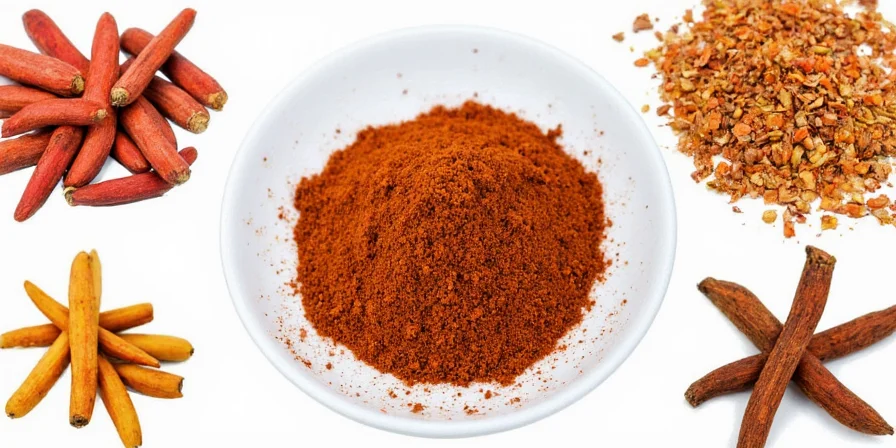









 浙公网安备
33010002000092号
浙公网安备
33010002000092号 浙B2-20120091-4
浙B2-20120091-4